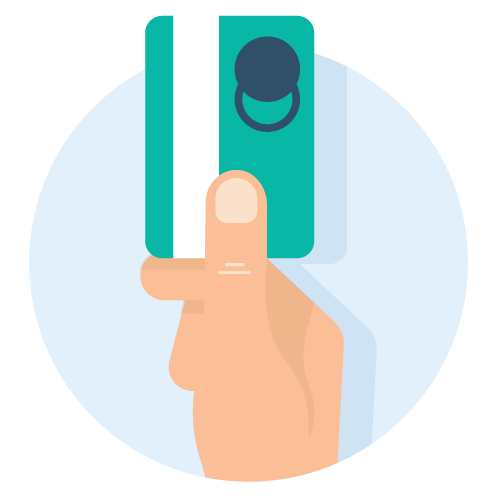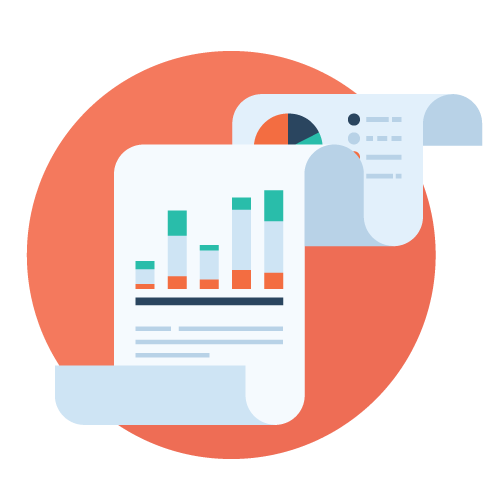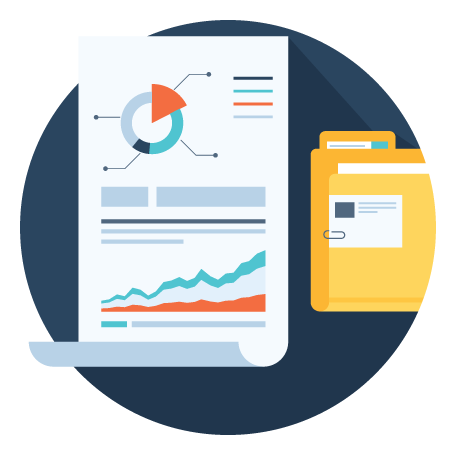In a hurry? Get debt reducing tips sent directly to your inbox.
What is the total cost when you only pay the minimum payment?
When using a credit card to purchase something on credit, it is wise to be aware of the amount of interest expense you may be paying over and above the actual cost of your purchase. Imagine you have a credit card balance of $1,000 because you bought a new television. Your interest rate is 18%. If the minimum monthly payment is $25, let’s see how much interest you pay between now and paying off the television. A small increase in your monthly payment dramatically reduces your overall interest payment!

Credit & Debt
Understanding Your Debt
Credit means that you are using someone else’s money to pay for things you need or want. Read More
Types of Debt
There are two major types of debt, installment and revolving. Read More
Know Your Debt
One of the first things to do when thinking about reducing your debt is to know the debt that you have. Read More
Credit Report and Credit Scores
Your credit report shows all of your debt and your payment history in one place. Read More

One of the first things to do when thinking about reducing your debt is to know the debt that you have
“Thanks to the My Money Works class, I was motivated to clean up my finances enough to get a credit card, which I used only for gas and paid off each month. So, when I needed a new car, the lenders had to check my credit (which I do check yearly). My credit score is 793, which has enabled me to obtain financing for my new (to me) car.”
Strategies to Reduce Debt
Stop Adding More Debt
Do your best to stop acquiring new debt. Read More
Contact Your Creditors
It is always a good idea to call your creditors (companies you owe money to) as soon as you know you are going to have trouble making your payments. READ MORE
Consolidation Options
Debt Consolidation is combining the debts you owe into a single monthly payment. Read More
Rollover Method Vs Pay the High Interest Rate
Should you pay off the debt with the lowest balance or pay off the debt with the highest interest rate? Read More

As long as you keep making new charges on your credit cards or taking on new loans, your debt load will never go down.
“Tracking my expenses in the My Money Works was a terrifying yet enlightening experience. I realize how much money I was spending on things I did not need and how quickly a daily trip for coffee or a weekly lunch out adds up to an unpaid bill.”
Make a Plan
Review Your Budget
This is a good time to review the budget you set up earlier and make any needed adjustments. If you have not set up a budget yet this is a good time to start one. Make sure you are saving for unexpected or emergency expenses so you don’t need to use credit for them.
Review Your Credit Report
If you haven’t already reviewed your credit report visit annualcreditreport.com and take time to do so now.
Take a Free Class
New Ventures Maine has free money management classes statewide. READ MORE
Choose Strategies to Reduce Debt
Review the strategies in Section 2, and choose the ones that work for you!

This is a good time to review the budget you set up earlier and make any needed adjustments.
“Paying down my credits cards was hard and took persistence, but now I have more money that I can use for savings and my credit score has increased as well!”
RESOURCES
FAQS
Q.How do I stop getting credit offers in the mail?
A. You may opt-out with the nationwide credit bureaus at 1-888-5 OPTOUT (1-888-567-8688)
Q. How do I fix mistakes on my credit report?
A. For information about credit report errors and how to dispute errors, visit this website.
Q. What is a collection agency?
A. There are two types of collection agencies: internal and external. Internal collection agencies are within the same creditor as you owe the money to. External collection agencies are companies that have purchased your debt from the creditor you originally borrowed from. You can find out more information here. There are laws that protect you and more information can be found here.
Q. How do I get creditors to stop calling me at work?
A. Unless you are late by 30 days or more, you should not get any calls from your creditor at work. Under the Federal Debt Collection Practice Act (FDCPA), the original creditor can call you at work to try to collect your payment. Click here to find out more information.
Q. Where can I find more information about debt collectors and the laws about them?
A. Visit this link to learn more.
‹ Go back to Creating Your Budget | Ready to Start Saving? ›
